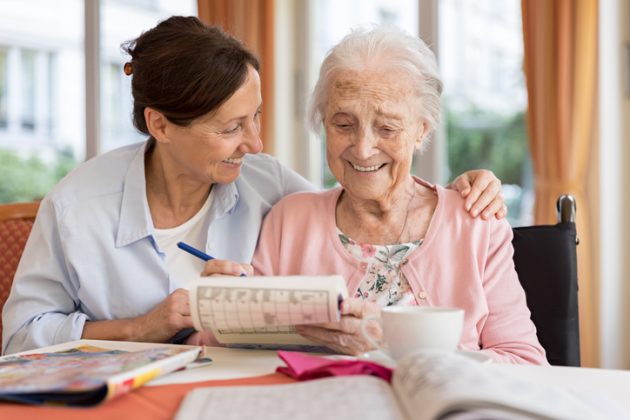The number of older adults with complex needs is growing quickly while safe, effective and reliable care is a pressing need. Current health systems are not adequately prepared to handle these complex needs and older adults are at the greatest risk for preventable harms and death as a result of their healthcare experience. A new initiative by the Institute for Healthcare Improvement is helping facilities across the country by developing an age-friendly health system model. The goal of the Age-Friendly Health System initiative is to spread four essential elements, known as the 4Ms across a healthcare organization.
The 4Ms include:
- What Matters: Know and act on each patient’s specific health outcome goals and care preferences.
- Mobility: Maintain mobility and function and prevent/treat complications of immobility.
- Medication: Optimize use to reduce harm and burden, focusing on medications affecting mobility, mentation, and what matters.
- Mentation: Focus on delirium, dementia and depression.
To perform an organizational assessment and to access resources to transform a healthcare facility to become Age-Friendly, access this resource link.
Apart of the Age-Friendly initiative organizations need to care for the caregivers. There are several resources available to healthcare organizations from the American Association of Retired Persons (AARP). The Home Alone Alliance is a collaborative effort to change the way health care organizations and professionals connect with family caregivers. This site provides access to a number of videos and resources for caregivers and professionals.
Also available from AARP is the Prepare to Care: A Resource Guide for Families, which provides information on how to have vital conversations with older family members, organizing important documents, assessing a person’s needs, and locating important resources. Employers can also download Supporting Caregivers in the Workplace: A Practical Guide for Employers, which is a toolkit designed to help support family caregivers at work.




